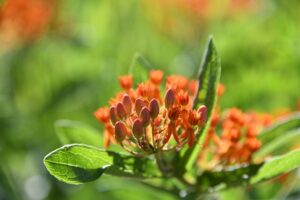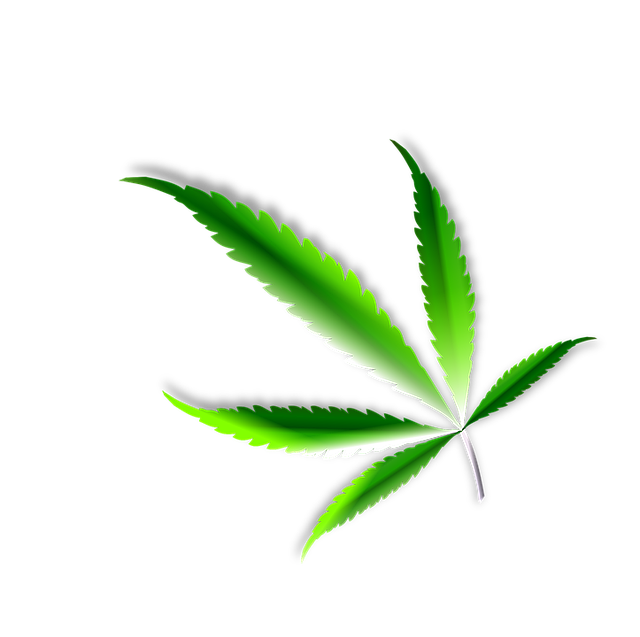
THCA (tetrahydrocannabinolic acid) and CBD (cannabidiol) are both compounds derived from cannabis that offer distinct benefits for sleep regulation. While THCA is the non-psychoactive precursor to THC and may act as a sedative by promoting relaxation without causing intoxication, potentially helping with sleep disturbances linked to inflammation or pain, CBD is known for its calming properties that can indirectly enhance sleep quality by supporting mood and stress relief. Research indicates that both THCA and CBD can serve as non-pharmaceutical alternatives for improving sleep health, but they do so differently. When considering THCA vs CBD for sleep, it's important to remember that individual physiology plays a significant role in determining which compound might be more effective. Users should start with low doses of THCA, around 5-10 mg, and consider indica-dominant strains for their sleep-promoting effects. It is recommended to consume THCA about 30 minutes to an hour before bedtime within a consistent nightly routine. Consulting healthcare professionals is essential to navigate these options safely and effectively, as personal health concerns and medication interactions can influence the outcomes. Both THCA and CBD have potential for addressing sleep challenges, but a tailored approach under professional guidance is key to maximizing their benefits for restful sleep.
explore the potential benefits of THCA (Tetrahydrocannabinolic Acid) flower on sleep quality, delving into its distinct role compared to CBD. This article provides a comprehensive guide on incorporating THCA flower into your nighttime routine for enhanced sleep. From understanding the science behind THCA and its effects to practical dosage and strain recommendations, discover how this natural compound can transform your slumber. Whether you’re new to cannabinoids or looking to optimize your rest, learn how THCA flower may offer a better night’s sleep, compared to CBD, for a well-rested tomorrow.
- Understanding THCA Flower and Its Role in Sleep
- THCA vs. CBD: A Comparative Analysis for Better Sleep
- Optimizing Sleep with THCA Flower: Dosage, Strains, and Usage Tips
- Integrating THCA Flower into Your Nighttime Routine for Improved Sleep Quality
Understanding THCA Flower and Its Role in Sleep
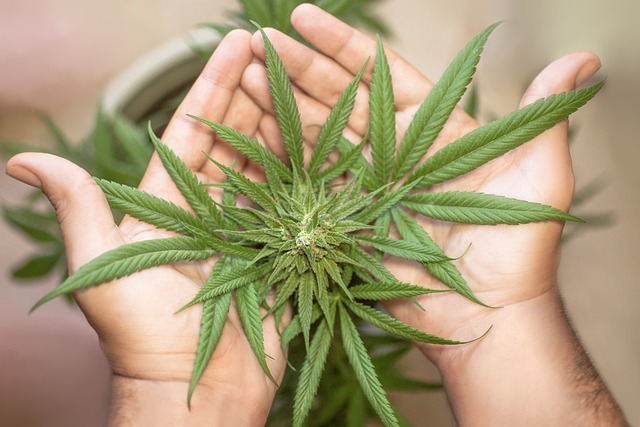
THCA, or tetrahydrocannabinolic acid, is a non-psychoactive cannabinoid found in hemp and cannabis plants. Unlike its well-known counterpart THC, THCA does not induce psychoactive effects but has been gaining attention for its potential therapeutic benefits, including its role in sleep regulation. Research suggests that THCA may interact with the body’s endocannabinoid system, which plays a crucial role in maintaining balance or ‘homeostasis’ within various physiological processes. Unlike CBD, which is another major cannabinoid known for its calming and relaxing effects, THCA has a distinct profile. While both compounds may contribute to better sleep quality through their interactions with the endocannabinoid system, THCA is believed to influence sleep architecture more directly.
When considering THCA vs CBD for sleep, it’s important to understand how each cannabinoid might affect sleep differently. THCA may be particularly beneficial for those experiencing insomnia or sleep disturbances, potentially acting as a sedative by promoting relaxation and alleviating anxiety, which often accompany sleep issues. On the other hand, CBD is more commonly associated with mood support and stress relief, which can indirectly improve one’s ability to fall asleep and maintain restful sleep throughout the night. As interest in cannabinoids for sleep health grows, ongoing research continues to shed light on the individual and combined effects of THCA and CBD, offering promising avenues for non-pharmaceutical approaches to sleep improvement. Users interested in exploring THCA or CBD for sleep should seek high-quality, full-spectrum hemp products and consult with healthcare professionals to ensure safe and effective use.
THCA vs. CBD: A Comparative Analysis for Better Sleep
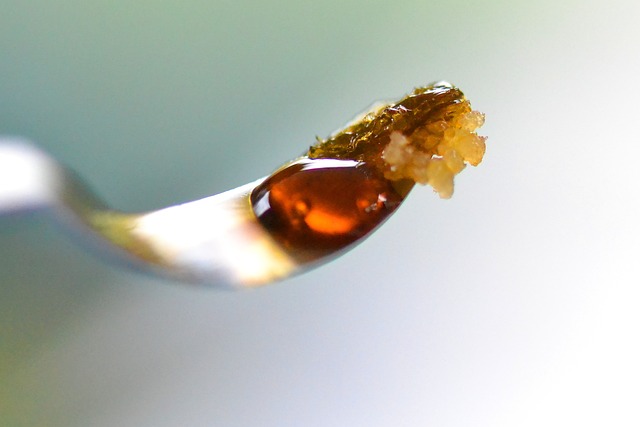
THCA, or tetrahydrocannabinolic acid, and CBD, or cannabidiol, are both prominent compounds found in the cannabis plant, each with distinct effects on the human body. As you explore THCA versus CBD for sleep, it becomes evident that while they share a common origin, their interactions with the endocannabinoid system can yield different outcomes. THCA is the precursor to THC and possesses a chemical structure that includes psychotropic properties when heated. However, in its raw form, THCA exhibits little to no psychoactive effects. It is non-intoxicating and has been found to potentially offer sedative benefits. This can be particularly advantageous for individuals seeking relaxation without the mind-altering side effects associated with THC.
On the other hand, CBD is known for its calming properties and has gained popularity for its non-psychoactive nature. It interacts with the body’s endocannabinoid system through various receptors and pathways, which may influence sleep patterns and promote a state of calmness. Research suggests that both THCA and CBD can be beneficial for sleep quality; however, their effects might differ based on individual physiology and specific sleep disorders. For instance, THCA may be more effective in addressing sleep disturbances related to inflammation or pain, while CBD could be preferred for individuals dealing with anxiety or stress-induced insomnia. When considering THCA vs CBD for sleep, it’s important to evaluate the individual’s needs and consult with a healthcare provider to determine the most suitable option for enhancing restful sleep.
Optimizing Sleep with THCA Flower: Dosage, Strains, and Usage Tips

When exploring natural remedies for optimizing sleep, THCA (Tetrahydrocannabinolic Acid) flower emerges as a promising option. Unlike its counterpart CBD (Cannabidiol), THCA possesses a unique interaction with the body’s endocannabinoid system that can promote restful sleep. Users considering THCA for sleep should be mindful of dosage, as individual sensitivity varies. A general starting point is a small dose, around 5-10 mg of THCA, administered 30 minutes to an hour before bedtime. This allows the compound to take effect without overstimulating the mind. As with any sleep aid, consistency is key; incorporating THCA into a regular nightly routine can enhance its efficacy.
Choosing the right strain of THCA flower for sleep is also crucial. Indica-dominant strains are often favored for their calming and sedative effects, which can help alleviate insomnia and improve overall sleep quality. Strains like Northern Lights and Granddaddy Purple are known for their relaxing properties. Additionally, users should consider the method of consumption, whether it be inhalation, capsules, or tinctures, as this can influence the onset and duration of effects. It’s important to note that while THCA can be beneficial for sleep, it’s not a one-size-fits-all solution. Individuals should consult with a healthcare professional before integrating THCA into their sleep regimen, especially if they have underlying health conditions or take other medications. With the right dosage and strain selection, THCA flower can be an effective tool in your arsenal for achieving restful, rejuvenating sleep.
Integrating THCA Flower into Your Nighttime Routine for Improved Sleep Quality
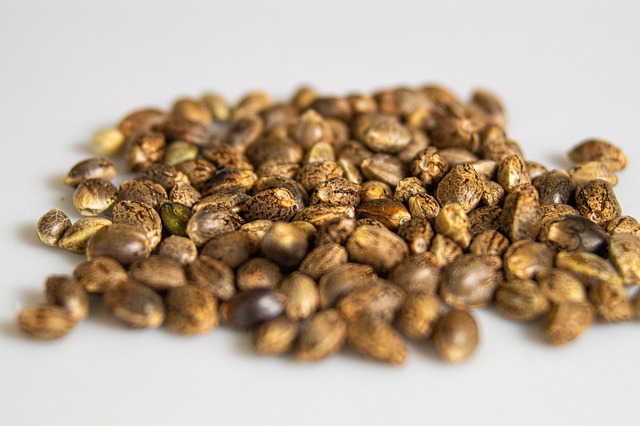
Incorporating THCA flower into your nighttime routine can be a beneficial strategy for enhancing sleep quality, particularly when compared to CBD. Tetrahydrocannabinolic acid (THCA), which is the raw form of THC found in cannabis plants, has been studied for its potential therapeutic properties, including its sedative effects. Unlike its psychoactive counterpart THC, THCA does not induce a high but may promote relaxation and ease into sleep due to its interaction with the body’s endocannabinoid system. This makes it a compelling alternative or addition to CBD, which is known for its calming and analgesic effects but is less sedative than THCA. For those seeking improved sleep quality, THCA flower may offer a more targeted approach, as it can help address sleep disturbances and insomnia.
To effectively integrate THCA flower into your evening regimen, consider timing and dosage to align with your body’s natural circadian rhythms. Typically, consuming THCA-rich products 30 to 60 minutes before bedtime can signal to your body that it’s time to wind down. The effects of THCA are often felt more acutely than CBD, so starting with a lower dosage and adjusting as needed is advisable. This approach allows for a personalized experience, optimizing the benefits of THCA for sleep without overwhelming the senses or altering the state of mind unintentionally. As with any supplement, it’s essential to consult with a healthcare provider before adding THCA flower to your nighttime routine, especially if you have existing health conditions or take other medications. With careful consideration and professional guidance, THCA can be a valuable addition to your sleep wellness toolkit.
When exploring the intersection of cannabinoids and sleep, THCA flower emerges as a compelling option for those seeking enhanced sleep quality. This article has delved into the unique properties of THCA, differentiating it from CBD in the context of improving sleep, and provided actionable advice on incorporating THCA flower into a nighttime routine. By understanding the nuances between THCA and CBD for sleep, individuals can make informed decisions tailored to their specific needs. Whether through dosage adjustments, strain selection, or timing of use, the guidance offered ensures that THCA flower can be a beneficial addition to one’s sleep regimen. As the body of research continues to grow, it is clear that THCA holds promising potential for those striving for better rest.

